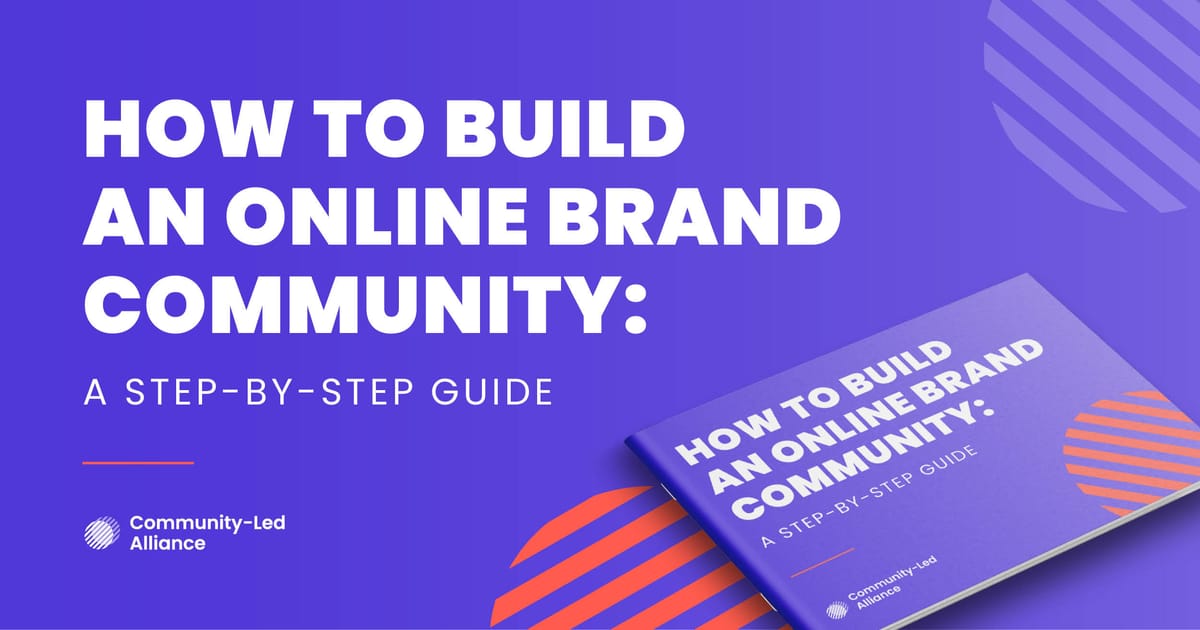AI has evolved quickly from a far-out idea into a practical tool that's part of our everyday lives. It now plays a role in all kinds of industries - healthcare, finance, marketing, education, entertainment, and more. By processing huge amounts of data and learning from experience, AI can drive innovation and make operations more efficient.
Community management is no exception. This field has traditionally relied on human social skills to oversee communities and facilitate interactions. The goal is to keep members engaged, supported, and working toward shared goals. Community management was once an entirely human job, but now AI is transforming how it's done.
Integrating AI into community management is reshaping how communities grow and thrive. AI tools are redefining community engagement by providing personalized experiences, automating repetitive tasks, and offering insights that humans alone can't access. This opens up important questions but also new opportunities.
In this article, we’ll explore AI's widespread impact on community management, how it doesn't just streamline operations but also improves the quality of interactions within communities.
The evolution of community management
Fostering unity and purpose has always been key for communities to thrive. Traditionally, it involved in-person interactions, relationship building, and addressing needs within a community. Early on, community managers were seen as organizers - they facilitated communication, mediated conflicts, and planned group activities.
The internet and social media transformed communities from physical to digital gatherings. This kicked off new community management practices suited to online forums, groups, and platforms. Community managers shifted their focus to things like moderating content, boosting online engagement, and coordinating virtual events.

While traditional practices were helpful, they were also labor-intensive and constrained by human limitations. Manually monitoring conversations, crafting personalized responses, and keeping communities engaged takes substantial human resources. Applying these methods to the vast scale of digital communities can become too difficult - more scalable solutions are needed.
This demand for efficiency and scalability paves the way for a major shift toward digital and automated solutions. AI and machine learning is a game-changer, offering tools that can process volumes of data, automate routine tasks, and provide insights into community behaviors and preferences.
Integrating AI into community management marks a new era where technology and human expertise work hand-in-hand. AI tools can handle moderation, answer common questions automatically, and analyze engagement patterns. This enables community managers to focus more on strategy, relationships, and complex issues requiring a human touch.
So rather than replacing humans, AI augments community management by blending technological efficiency with managers' nuanced human understanding.
AI for community management
Incorporating AI into community management represents a huge leap in how communities are nurtured, engaged with, and grown. AI tools and systems in this space are designed to automate, enhance, and personalize parts of community management.
Natural language processing (NLP) is key for understanding human language. It powers AI systems to read, interpret, and respond to conversations, enabling chatbots and virtual assistants to handle routine questions, offer support, and dialog with community members.
Machine learning and predictive analytics allow AI systems to learn from data, spot patterns, and anticipate future outcomes. In community management, this helps predict member needs, personalize content, and identify trends to inform decisions.
Sentiment analysis tools gauge the mood and tone of community discussions. This is critical for understanding member satisfaction, detecting potential issues early, and tracking the community's overall health.
Automated content moderation uses AI to scan massive volumes of user generated content in real-time, upholding guidelines and curbing toxic behavior.
AI community management tools used today:
- Chatbots and virtual assistants like Drift and Intercom leverage AI to provide automated member support and engagement.
- Services like Spectrum Labs and Two Hat offer AI content moderation to efficiently manage large community interactions.
- Platforms like Sprout Social and Hootsuite use AI analytics to provide deep insights into engagement and sentiment.

Benefits of AI in community management
Integrating AI brings major benefits that transform how communities are managed and experienced. From streamlining operations to personalizing experiences, AI is a game-changer for modern community management.
AI significantly increases efficiency by automating routine tasks like answering common questions, moderating content, and admin duties. This lessens the workload for human managers, freeing up their time for more strategic planning and community building.
AI technologies play a key role in boosting community engagement. Tools like chatbots and AI recommendation engines engage members by providing timely, relevant info and interactive experiences. This real-time interaction creates a more vibrant, responsive community atmosphere leading to higher satisfaction and retention.
A major benefit of AI is the ability to offer personalized experiences tailored to each member. AI algorithms analyze individual behaviors, preferences, and engagement patterns to deliver customized content and recommendations. This level of personalization makes members feel valued and connected to the community.
AI analytics offer valuable insights into community dynamics. By examining engagement data, content performance, interaction patterns, and more, AI helps managers make informed strategic decisions aligned to community needs and interests.
AI tools and technologies in community management
Integrating AI has introduced various tools that greatly enhance the scope and effectiveness of community management. These AI solutions don't just automate tasks - they also provide sophistication and insights that were previously impossible.
Managing queries and interactions
AI chatbots and assistants have become crucial for handling day-to-day community interactions. They instantly answer common questions, facilitate navigation, and provide 24/7 support.
By managing high volumes of queries simultaneously, they ensure members get prompt, consistent assistance. Advanced chatbots even learn from interactions over time to improve responses and mimic human-like conversation.
Content moderation
Content moderation is critical for maintaining a respectful community. AI tools can scan massive volumes of user posts in real-time to detect and filter inappropriate content based on predefined rules - like hate speech, spam, harassment. This not only speeds up moderation but helps preserve discussion quality and community standards.

Predictive analytics
AI-powered predictive analytics offer invaluable insights into anticipating community trends and behaviors by analyzing historical data alongside current interactions. This helps managers identify future engagement opportunities, shape content strategies, and address issues proactively based on the community's evolving dynamics.
Automated reporting
AI also simplifies community management reporting. Automated tools gather engagement rates, growth, content performance and other metrics into comprehensive reports that showcase the community's overall health and progress. This saves time while offering precise, actionable insights to inform data-driven decisions.
Challenges and concerns
While AI offers many community management benefits, notable challenges and concerns also arise that require thoughtful handling.
Privacy and security
AI-driven community management often utilizes vast amounts of personal data, raising major privacy issues. Ensuring robust security and compliance with regulations like GDPR and CCPA is crucial to prevent data breaches or misuse. Transparency around data practices also maintains community trust.
Ethical considerations
Deploying AI introduces ethical questions around consent for data use, potential for biased moderation, and the impact of automated decisions on community dynamics. Establishing ethical guidelines that respect member rights and well-being is essential.
Over reliance risks
Becoming over-reliant on AI systems risks detrimental dependency long-term. AI should augment human capabilities, not replace them. An absence of human judgment in community interactions could create a less empathetic environment. Striking a balance between AI and human oversight avoids such pitfalls.
Managing biases
AI systems reflect biases in their training data and programming. There is a risk of perpetuating unfairness or discrimination through community management AI. Regular audits, inclusive training data, and equitable design principles can mitigate bias risks in AI.
The future of AI in community management
As AI progresses, its role in community management will likely grow and evolve. Emerging trends and innovations point to AI having an even more transformative impact on the field down the road.
Emerging trends:
- Advances in NLP should allow more sophisticated understanding of human language. This will enable AI tools to have deeper, more meaningful dialogues that mimic human interaction.
- Integrating augmented reality (AR), virtual reality (VR), and AI could create immersive community experiences that make digital interactions feel real-time and in-person.
- Emotion AI seeks to understand and respond to human emotions. In communities, this could mean AI gauging the emotional context of interactions to enable more empathetic responses.
- Blockchain technology could pair with AI to build community trust and transparency around things like memberships, content authenticity, and moderation practices.
Predictions for AI's future:
- Hyper-personalization powered by AI data to tailor content, interactions, and support to individual members at an unprecedented scale.
- A shift from reactive to proactive community management as predictive insights allow managers to get ahead of member needs and trends.
- A growing focus on ethical AI governance with standards ensuring responsible and inclusive use of AI in community settings.
- A balanced blend of AI efficiency and human empathy, with AI optimizing operations and humans providing the nuanced oversight that AI still cannot fully replicate.
Final thoughts
AI's impact on community management has been profound across several fronts. AI introduces efficiencies and capabilities that simply didn't exist before. Automation makes tedious tasks a breeze, freeing up managers for strategic priorities and relationship building.
The data analytics side paints a richer picture to inform decisions. And the engagement and personalization power of AI tools lead to more responsive communities and a better member experience overall.
AI represents a truly transformative force in community management that unlocks immense potential. But it also introduces new responsibilities around ethics and building human-centric technology. If we can get that formula right - blending AI efficiency with indispensable human insight - the future looks incredibly promising. But it will require navigating the evolving landscape of AI thoughtfully, intentionally, and for the benefit of all members.
Have you downloaded your free copy of our playbook? It's designed to help you build an online brand community, so what are you waiting for?





